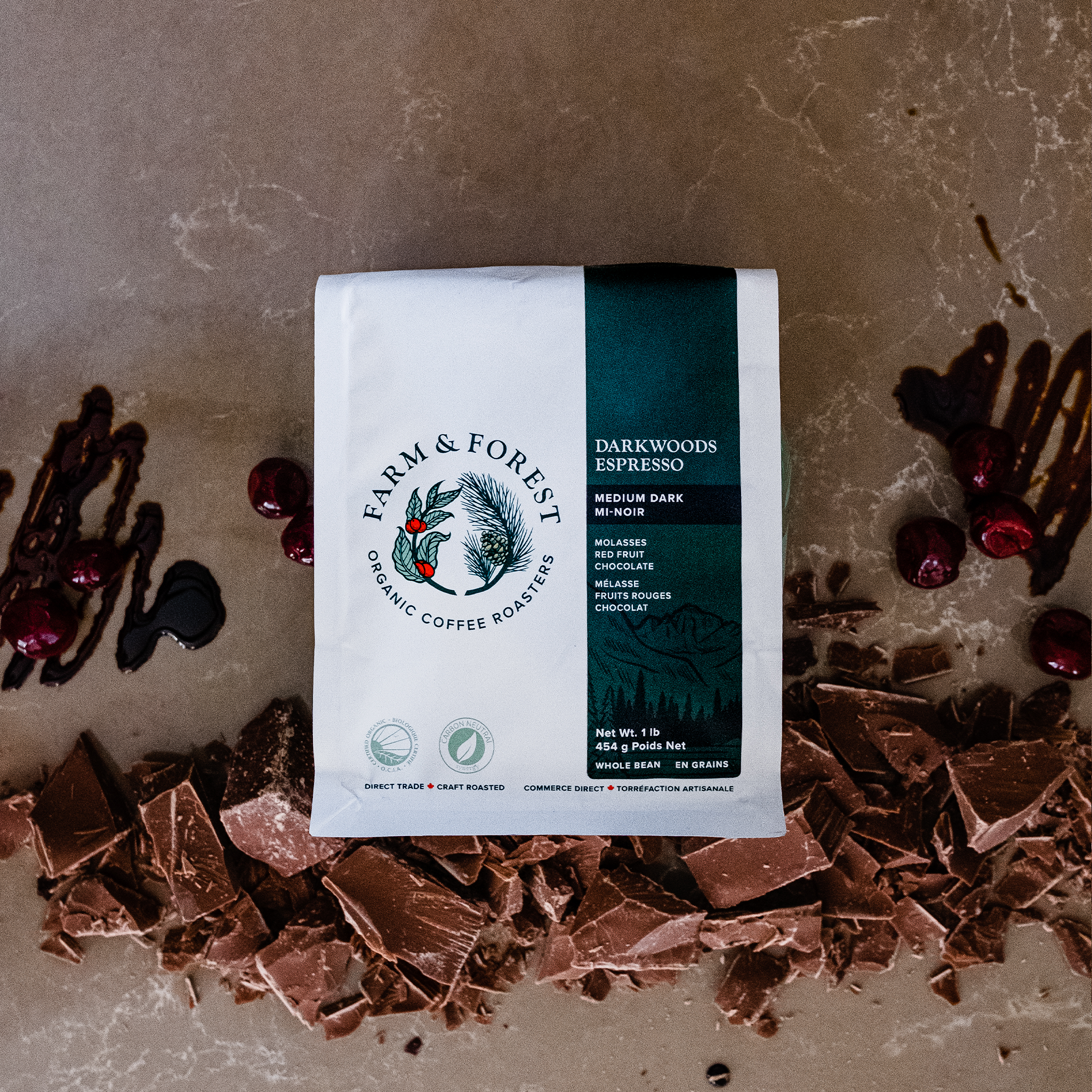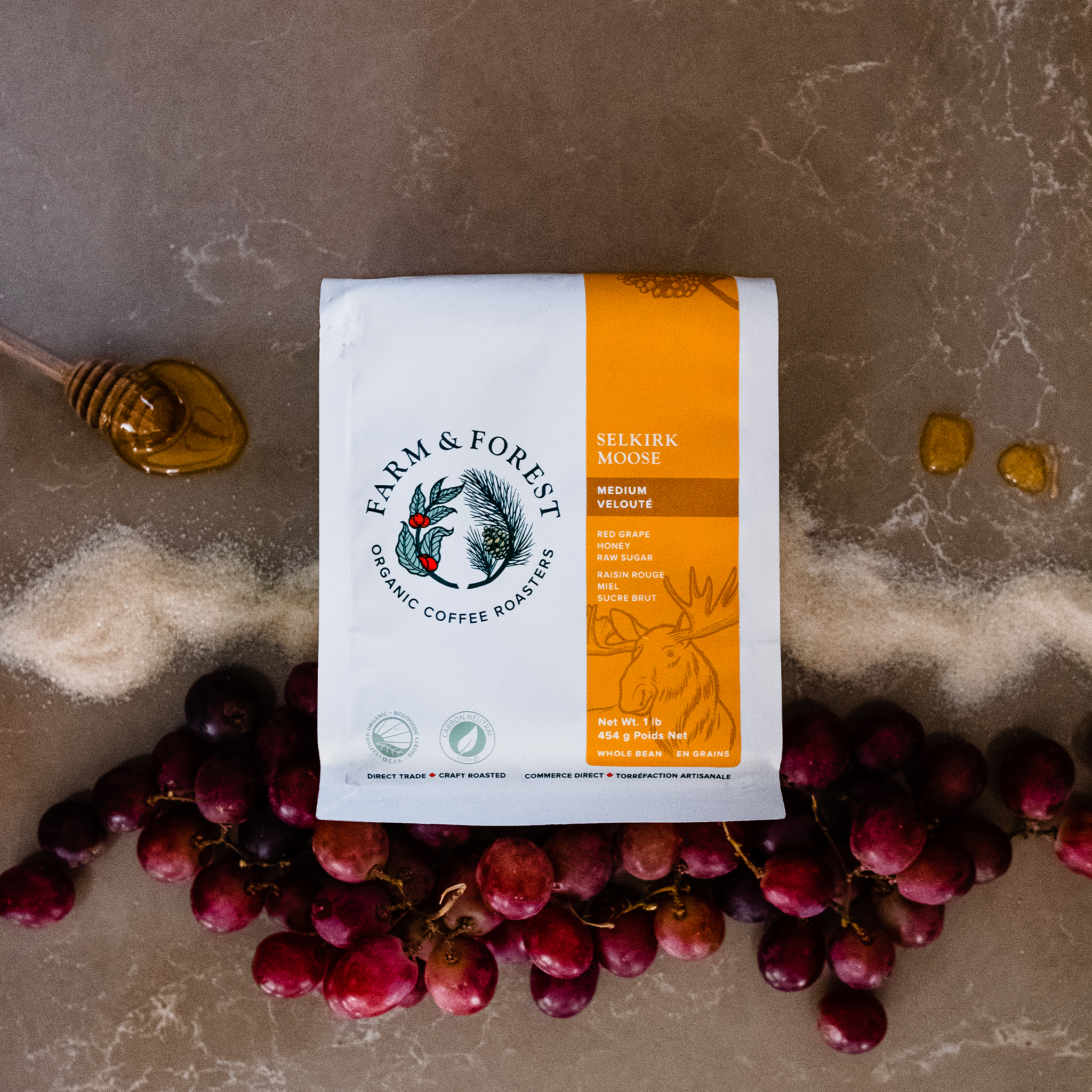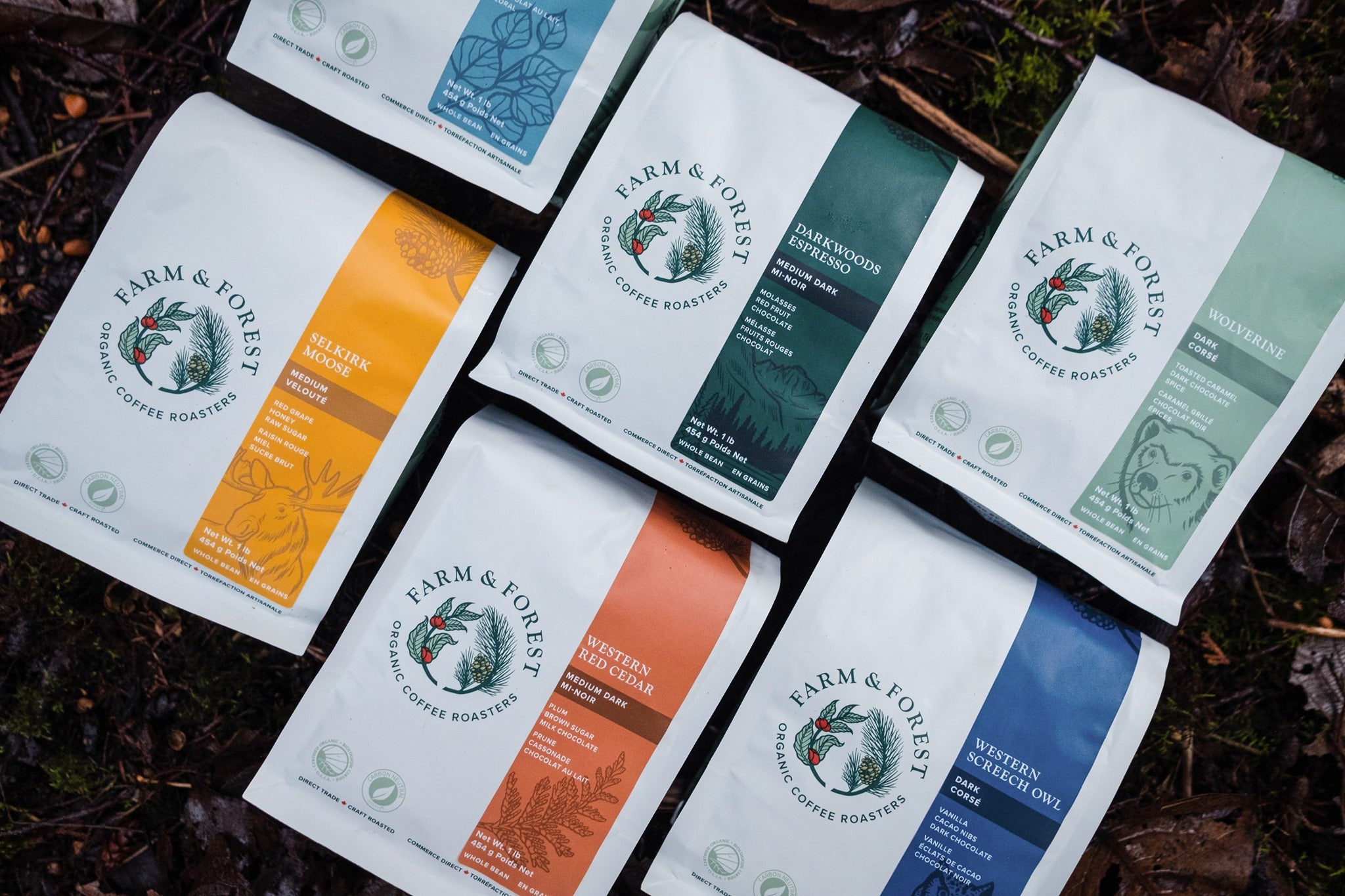How water can influence the flavour of your coffee
In the aromatic world of coffee, water plays a pivotal role in transforming the coffee grounds you love into a flavorful elixir. Understanding the connection between water quality and the final taste of your brew is essential for every coffee enthusiast.
We outlined here all you need to know to make the best choice for your next cup of coffee, in this article we’ll cover:
-
Water composition and how it impacts coffee flavour
-
Water mineral composition
-
PH Levels in Water
-
How Water Temperature Can Change The Flavor Of Coffee
-
Filtered vs. Tap Water and How It Impacts Coffee Flavour
-
Water Purification Methods
-
FAQs about how water can influence the flavour of coffee
Water composition and how it impacts coffee flavour
Delving into the science of water, we’ll explore together the influence of minerals, PH, temperature, and softness, while giving you tips to improve water quality.
Water mineral composition
The minerals present in water, notably calcium and magnesium act as carriers, facilitating the extraction of flavorful compounds from the coffee beans influencing the extraction rate and solubility of compounds that contribute to aroma, body, and overall taste.
Striking the right balance in mineral content is key, and testing your water or reading labels before purchasing is the way to go.
Your choice depends on personal preferences, however, a commonly recommended range is:
-
Calcium (Ca): In the range of 50-150 parts per million (ppm).
If you brew your coffee with water with a calcium concentration above 150 ppm it can result in bitterness, a heavier or chalky mouthfeel, and masking of flavour nuances.
On the other hand, If you brew your coffee with water with a calcium concentration below 50 ppm it can result in a flat or dull taste, being overly sharp or sour, reducing natural sweetness, and delivering a thin body or watery cup of coffee.
-
Magnesium (Mg): In the range of 10-30 ppm.
If you brew your coffee with water with a magnesium concentration above 30 ppm it can result in bitterness, astringency, and generate a metallic or medicinal taste.
On the other hand, If you brew your coffee with water with a calcium concentration below 10 ppm it can result in a flat, sour, and over-acidic taste, and can deliver a thin body or watery cup of coffee.
You will probably hear people talking about Hard Water (to describe high mineral content in water), or Soft Water (water with lower mineral content), being the choices for you to consider when brewing coffee. The recommendation would be to choose a balanced mineral content or soft water to reach a cleaner cup, allowing the nuanced flavours of the coffee to shine.
PH Levels in Water
The pH level of water plays a crucial role in shaping the flavour profile of coffee during the brewing process. Coffee beans contain a myriad of organic acids, and the extraction of these compounds is highly sensitive to the acidity or alkalinity of water.
And the pH will influence in the solubility of specific flavour compounds in coffee, impacting mainly the balance between sweetness and acidity.
Low pH in water, indicates higher acidity, reading of 5 and below can result in increased acidity flavour, it can accentuate the bright and fruity notes in the coffee which can be appealing for those who enjoy a vibrant and lively cup. As it may also counteract bitterness, creating a more balanced and less bitter coffee.
High pH in water, indicates higher alkalinity, reading of 8 and above can result in a coffee that is less bright and sharp while contributing to a flat or dull taste in coffee. It may allow bitterness to become more pronounced, and impart undesirable soapy or metallic flavours to the coffee.
The ideal levels of pH to have the natural flavour of the beans extracted, and reach a profile that most people will like reads from 6 and 7, having a neutral pH.
How Water Temperature Can Change The Flavor Of Coffee
While the optimal water temperature for coffee brewing varies depending on the chosen method and personal preferences, a water temperature that is too high or too cold can jeopardize the full spectrum of flavours quality coffee beans could deliver.
So here we outline the results of choosing high or low water temperature, as well as the recommended temperatures for the most common coffee brewing methods:
High-temperature water, generally higher than 205°F (96°C), can result in over-extraction, causing the extraction of bitter compounds from the coffee grounds, as well as burnt or charred flavour notes, giving you a dry and astringent mouthfeel, while masking the nuanced flavours of the coffee.
Low-temperature water, that would be lower than 195°F (90°C), can result in under-extraction, where not enough flavours are extracted from the coffee grounds. As well as leading to a sour or acidic taste, and a thin and watery body that combined will guarantee a less enjoyable coffee experience.
The ideal temperature to have the natural flavour of the beans extracted, and reach a profile that most people will enjoy it's generally recommended to brew with water within the range of 195°F to 205°F (90°C to 96°C).
And if you are looking to experiment we outlined general guidelines for you to start with while finding the sweet spot for your preferred flavour profile in each brewing method:
-
Drip Coffee Maker: 200°F (93°C) to 205°F (96°C)
-
Pour-Over: 195°F (90°C) to 205°F (96°C)
-
French Press: 200°F (93°C) to 205°F (96°C)
-
Espresso: 195°F (90°C) to 205°F (96°C)
-
Aeropress: 175°F (80°C) to 205°F (96°C)
Filtered vs. Tap Water and how it impacts coffee flavour
The choice between filtered and tap water can significantly impact the flavour of your coffee. Tap water is sourced directly from municipal supplies, and its composition can vary widely based on geographic location. While some tap water is perfectly suitable for brewing, others may contain impurities or flavours that adversely affect the taste of your coffee. On the other hand, filtered water has undergone a purification process to remove impurities, chlorine, and other potential contaminants. This can lead to a cleaner and purer canvas for brewing, allowing the delicate flavours of your coffee beans to come to the forefront without interference from unwanted elements.
Brewing with tap water may introduce subtle flavours that can either complement or detract from the coffee's profile. In some cases, minerals in tap water can enhance the coffee's body and sweetness. However, if tap water carries a strong taste of chlorine or impurities, it can mask the coffee's natural flavours. Filtered water, being purer, tends to provide a neutral foundation, allowing for a more precise extraction of the coffee's inherent flavours.
Ultimately, the choice between filtered and tap water is a matter of personal preference, and experimentation is key to finding the balance that best complements your chosen coffee beans and brewing method.
Water Purification Methods
The presence of impurities, minerals, or undesirable flavours in water can compromise the clarity and purity of coffee essences. Purification techniques play a transformative role by removing contaminants and ensuring a clean, neutral foundation for the perfect coffee flavour. So next we’ll cover water purification methods you can do at home and the pros and cons of each of those for brewing coffee:
Distillation
Can be more complicated as you’ll need build your own distiller with house utensils or find one to purchase. The pro being the purity of the water after being processed, as distillation will removes minerals, contaminants, and impurities. And it is an energy-intensive process and may alter the taste of coffee due to the absence of minerals, another con being the cost if you choose to buy the equipment.
Activated Carbon Filtration
The simplest one to find at any groceries store, we can list as pros to remove common impurities, chlorine, and undesirable flavours. And the con of using it that it may not effectively remove minerals, leading to variability in water hardness.
Ion Exchange Resin Filters
Is the best solution if you want to get soft water as a result, this method softens water by exchanging unwanted ions. The cons being the cost of getting one, as well as the periodic resin replacement, and the fact that it might not remove all water contaminants.
Reverse Osmosis
Here we start with the cons as you’ll need a dedicated system for this and the price can be high. Still on the not so great side is that some water will be wasted during the process, and it might remove more minerals than you originally wanted. But in the pro side, it is one of the most effective purification methods.
UV Purification
Is one of the most effective filtration methods as it disinfects water by destroying bacteria and viruses, being a chemical-free way to treat water. The costs being the main con here, and it does not remove particulate matter or alter mineral content.
In conclusion understanding the connection between water quality and the final taste of your brew is essential for every coffee enthusiast, and we hope this article helped you going the right direction to find the best coffee for you.
And if you want to take care of your water for the best taste, you’ll want high quality fresh beans, so your next cup is always the best one. Farm & Forest Coffee are organic and sourced from some of the world’s finest growing regions and roast them at our carbon-neutral facility, nestled near the shores of the Pacific Ocean. From bold dark-roasts to start your day with a high note, to the best decaf that will be delicious without the kick, we got you covered:
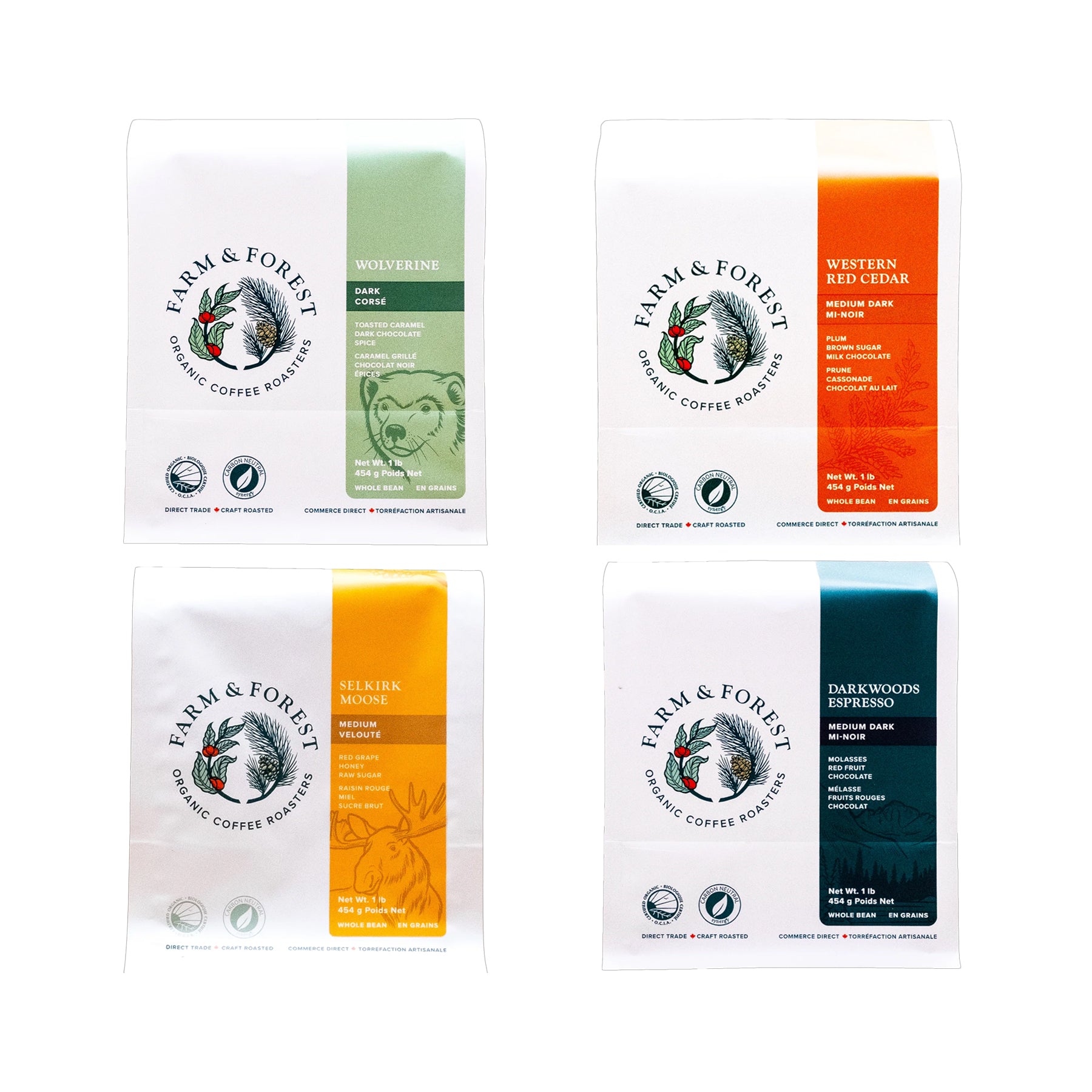
Sampler Pack 4x 200g: Wolverine, Western Red Cedar, Selkirk Moose, Dark Woods Espresso
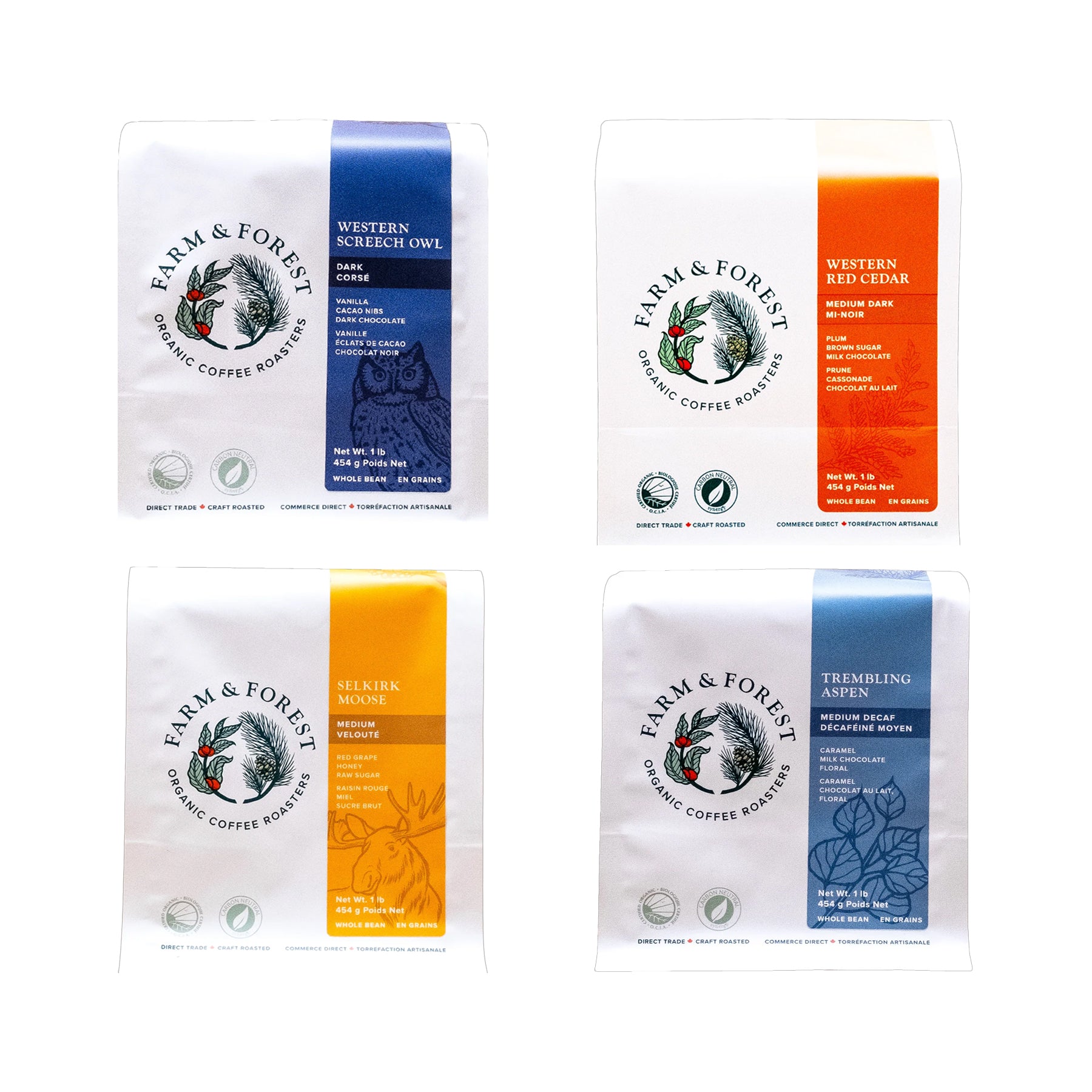
Sampler Pack 4x 200g: Western Screech Owl, Western Red Cedar, Selkirk Moose, Trembling Aspen
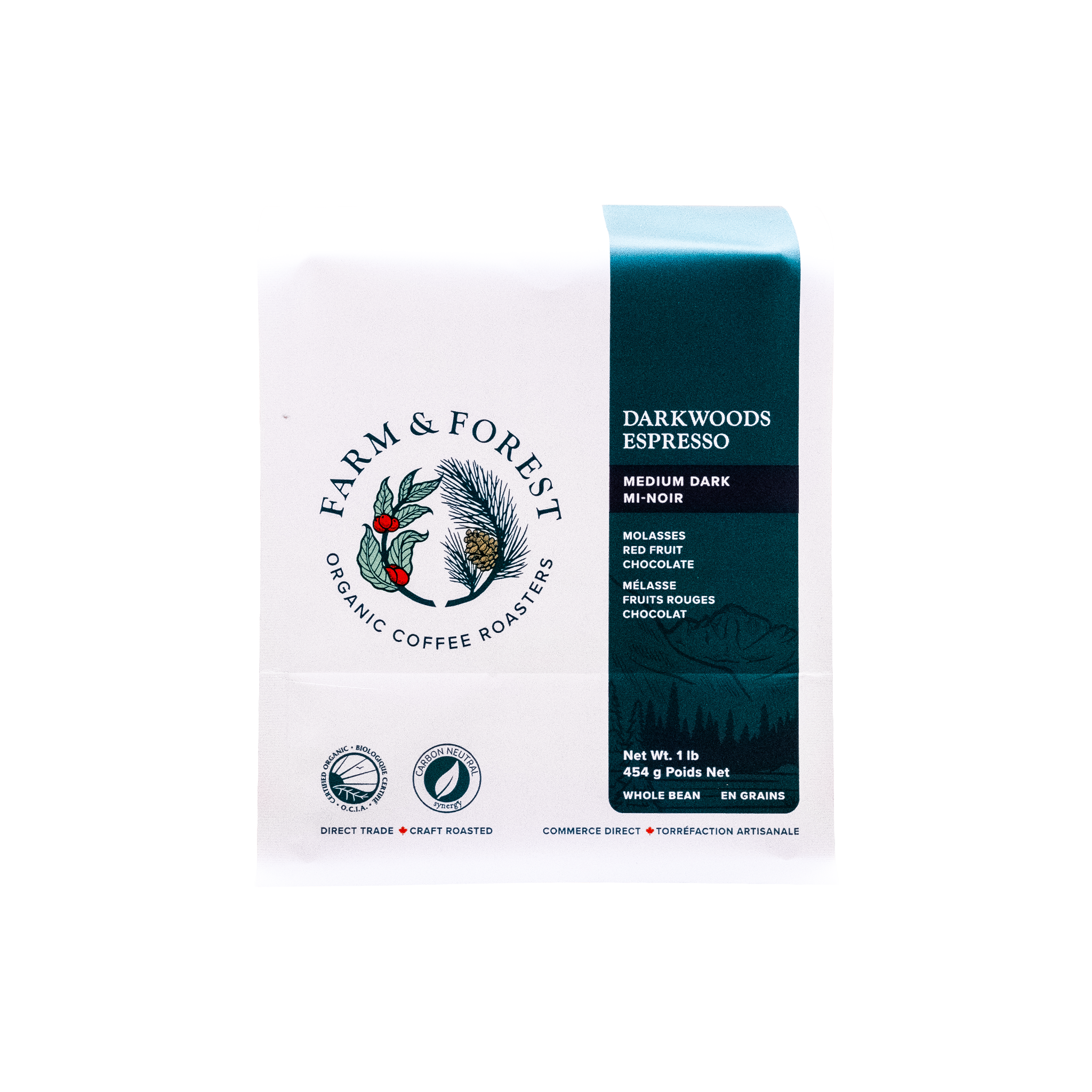
Organic Darkwoods Espresso
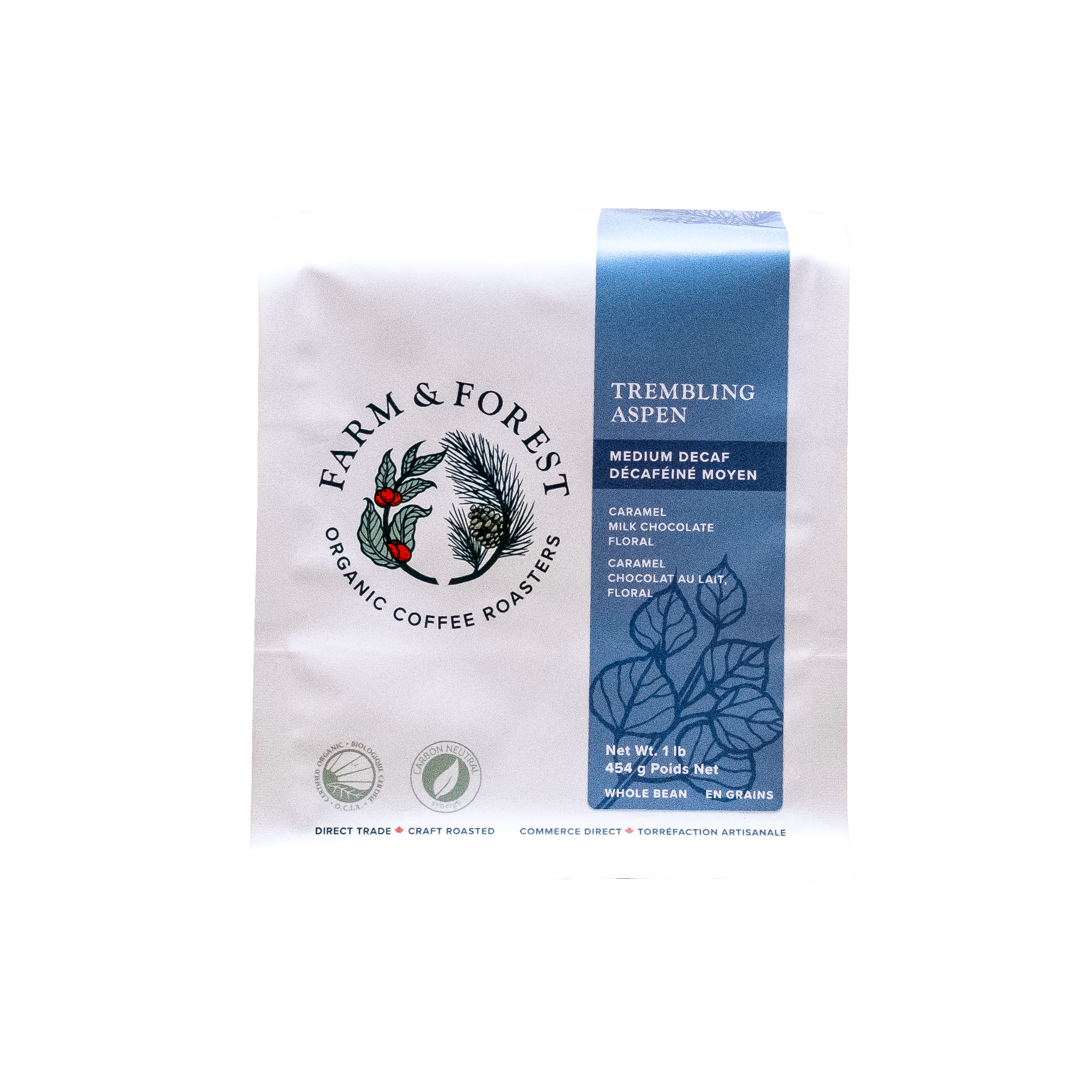
Organic Trembling Aspen SWP Decaf Coffee
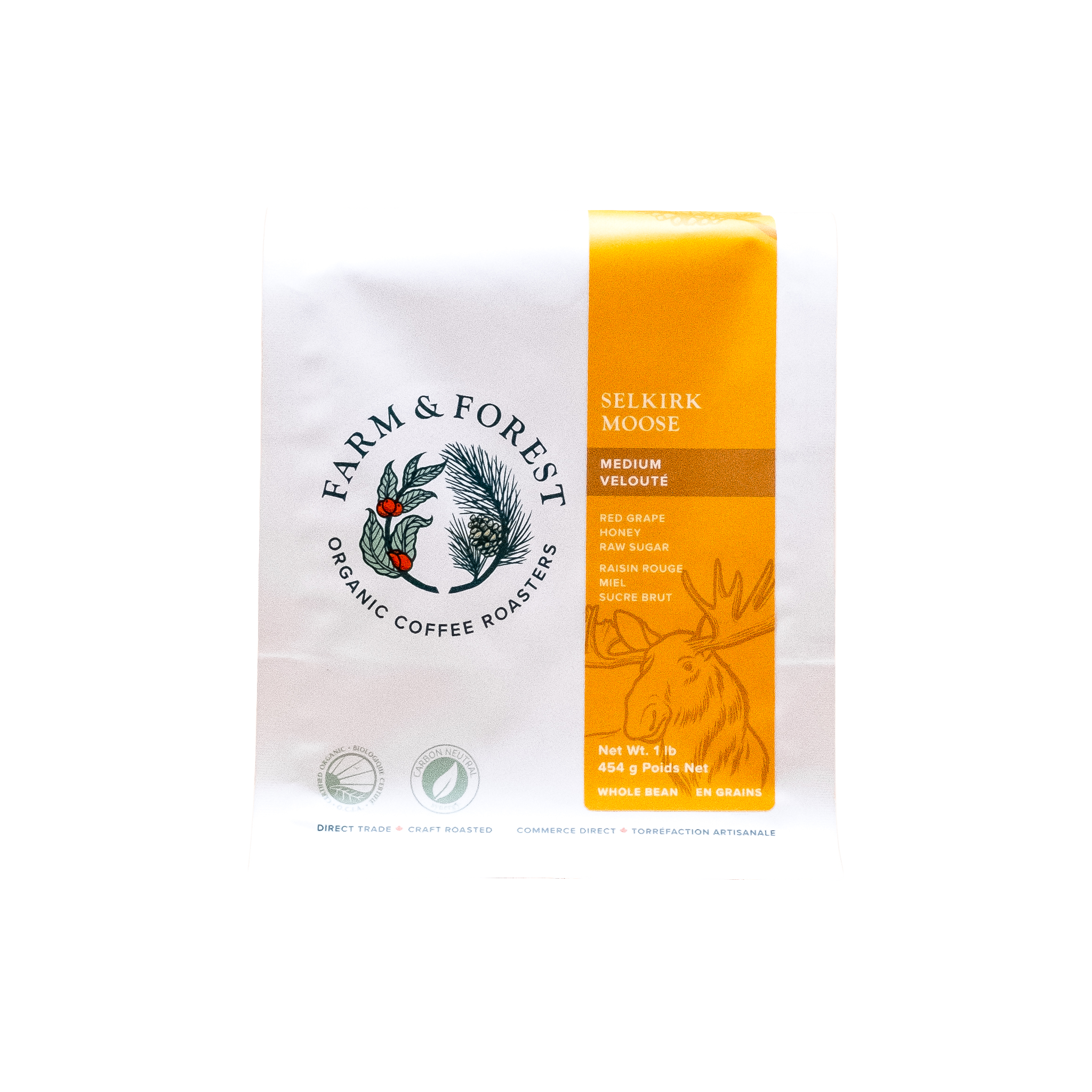
Organic Selkirk Moose Coffee
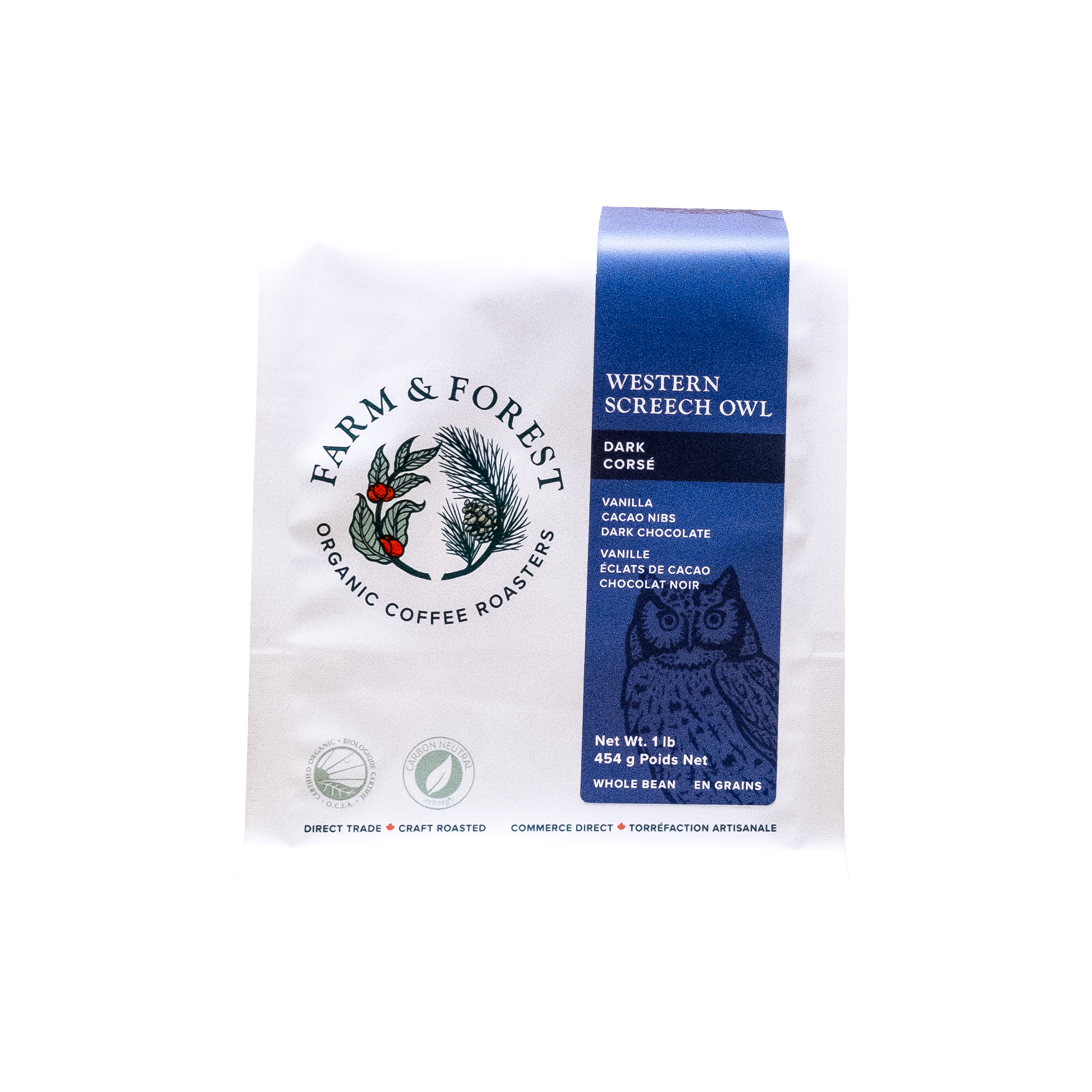
Organic Western Screech Owl Coffee
FAQs about how water can influence the flavour of coffee
Which water is better for coffee, hard or soft water?
Soft Water, or water with lower mineral content is the best choice when brewing coffee. The balanced mineral content or soft water allow you to reach a cleaner cup, allowing the nuanced flavours of the coffee to shine. Hard Water can be the preference for some people as certain minerals can allow specific flavours to stend up or make certain flavours less present, so always test to find the type you like the most.
What pH level in water is better for coffee?
The ideal levels of pH to have the natural flavour of the beans extracted, and reach a profile that most people will like reads from 6 and 7, having a neutral pH.
What is the ideal water temperature to brew coffee?
The ideal levels of pH to have the natural flavour of the beans extracted, and reach a profile that most people will like reads from 6 and 7, having a neutral pH.
What is better for coffee, filtered or tap water?
The choice between filtered and tap water is a matter of personal preference, and experimentation is key to finding the balance that best complements your chosen coffee beans and brewing method.






